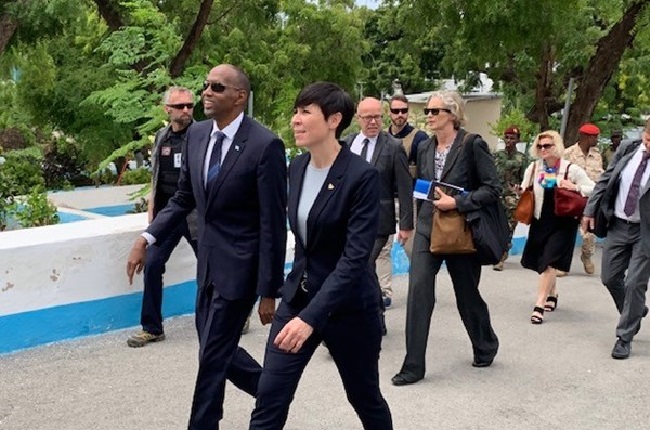Key reforms include the introduction of biometric registration of the Somali armed forces and digital payment of their salaries. This promotes predictability, prevents corruption and boosts loyalty.
In cooperation with the African Union Mission in Somalia (AMISOM), a regional peacekeeping mission, and other allies, the Somali government has expanded its territorial control while also providing better protection for the local population.
“The progress is fragile and many challenges remain. In 2019 and 2020, it will be crucial to continue to implement the reforms to the security sector, the economy and the political system. But Somalia is already receiving broad international recognition for its reform efforts. To achieve lasting progress, it is important that regional actors and the international community support this work,” Eriksen Søreide said.
One of the factors threatening progress is climate change, which is causing more frequent droughts. Droughts are a significant problem. They are affecting local food production, exacerbating existing conflicts and forcing even more people to flee their homes. Norway is now increasing its humanitarian efforts in Somalia in order to prevent a famine.
Some 70 % of Somalia’s population is under the age of 30.
‘Despite the major challenges, I am cautiously optimistic. A new generation of Somalis is creating a new story for their country. They are showing a willingness to pursue reconciliation and an ability and determination to build a new Somalia,’ Eriksen Søreide said.


